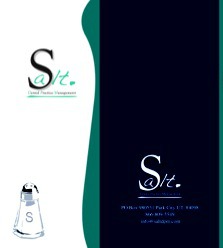It can be challenging to communicate
when our co-workers are standing in front of us. For example, you may make an
assumption they are angry with you based on their tone or that they do not like
you because of body language. In email there is no tone. We interpret an email
solely based off of the words, therefore; it is even more critical for
individuals to be conscious of what they are saying. A short to the point
response in email can be presumed to be rude or that you are yelling at the
individual. While a long, detailed email can get lost in translation.
I often respond to emails in a yes or
no manner with very little detail. Who wants to sit at their computer and read
a novel? I don’t. However, a co-worker came to me once and asked if I was upset
with her. I said no, why would you think that. She stated that my email was
short and that she thought maybe, I was mad at how she was performing her job.
I was shocked. I had never thought of it that way. For me, I responded in a
brief to the point email because I did not feel that the email warranted more.
Individuals have their own tone of
voice, pitch and cadence. We speak in a particular manner and this same manner
is how we read information. If you are a negative individual you will read
emails with a negative connotation. And if you are positive and upbeat, you
will read with a happy tone. This is critical when the person is not in front
of you and you cannot read their body language.












